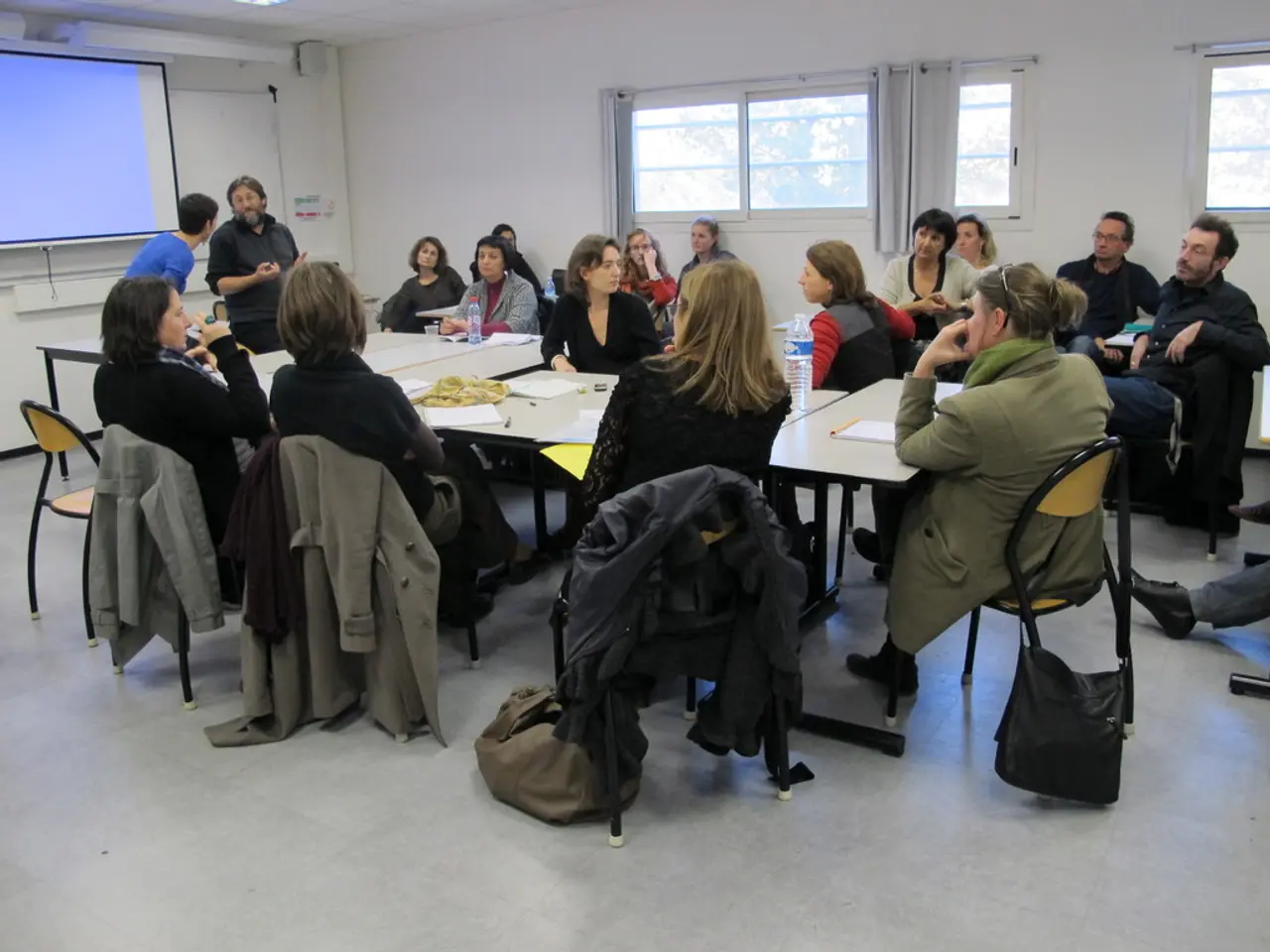Shifting Tides: Exploring Possibilities Post-Globalization
In the wake of the collapse of the global consensus on economic policymaking, the world is witnessing a significant shift in the landscape of globalisation. This transition is characterized by a move from a unified, liberal economic order towards a more fragmented, contested, and competitive international environment.
Europe, with its unique opportunity and significant responsibility, finds itself at the forefront of this transformation. Apostolos Thomadakis, Research Fellow and Head of the Financial Markets and Institutions Unit at the Centre for European Policy Studies (CEPS), and Head of Research at the European Capital Markets Institute (ECMI), is among those leading the charge in shaping a fairer globalisation model for Europe.
The new approaches to globalisation are marked by competing national strategies and fragmentation. Major powers such as the U.S. and China are pursuing rival globalisation policies that reflect broader political and ideological divides. For instance, in July 2025, both countries released national AI strategies with global ambitions but contrasting frameworks: the U.S. ties AI exports to political alignment and allies, while China promotes more open, less conditional cooperation.
Investors and corporations are adopting geostrategic approaches to navigate this fragmentation in global markets. Regions like Asia, including India, Vietnam, Singapore, and the UAE, are benefiting from supply chain realignment and sovereign tech investment, especially in AI. Europe aims to reassert political and economic sovereignty to compete in strategic sectors under this new "intelligent" and adaptive global order.
Meanwhile, the Global South, particularly emerging economies in Latin America, Asia, and parts of Africa, is presented with opportunities for greater integration into the global economy. Countries like Argentina, Brazil, India, and South Africa are potential new hubs of globalisation, signalling a shift towards multipolar global economic integration.
The vulnerabilities exposed by COVID-19 and ongoing geopolitical tensions have led companies to diversify supply chains, balancing efficiency with resilience. This market dynamics supports continued globalisation but in a more cautious, regionally diversified form.
However, this evolution poses challenges to collective action on global problems. The fragmentation of global governance and economic relations risks undermining coordinated responses to transnational issues such as climate change, pandemics, and technological regulation. Divergent national interests and competition may reduce trust and complicate consensus-building.
While globalisation is not ending, it is evolving towards more regionalized, selective interdependence. This can weaken traditional global supply chains but also stimulate new regional blocs and partnerships, especially outside traditional Western-led frameworks.
The response to the 2008 financial crisis was one of retrenchment, leading to fiscal austerity, regressive tax systems, wage stagnation, financialization, increasing inequality, and erosion of labor's bargaining power. Strategic autonomy has replaced comparative advantage in global economic strategies. Governments are focused on securing supply chains rather than optimizing them.
Populist movements have become dominant electoral forces across advanced economies, rejecting the liberal economic consensus. The Covid-19 pandemic and Russia's invasion of Ukraine have accelerated this process, leading to increased geopolitical competition and weaponization of economic interdependence.
In conclusion, globalisation today is characterized by strategic competition, fragmentation, and regional diversification, rather than a collapse into isolationism. This evolution poses challenges to collective action on global problems but also opens pathways for new players and models of economic interdependence.
As we navigate this new era, it is crucial for Europe to take a proactive role in shaping a fairer globalisation model. Domestically, public investment in education, infrastructure, healthcare, and labor market resilience is essential for survival. Multilateral institutions need to be updated to reflect today's geopolitical landscape. Investment uncertainty has risen, cross-border capital is becoming more cautious, and divergent regulatory regimes are increasing compliance burdens. Technological bifurcation is accelerating in areas like artificial intelligence, data governance, and digital infrastructure. Companies now operate in a world where geopolitical risk is a critical strategic variable.
As we move forward, it is essential to address unresolved global issues such as vaccine equity, climate finance, and the need for enforceable labor and environmental standards in trade agreements. The focus of investment policy should shift from short-term arbitrage to fostering long-term productive capacity. The grand bargain that economic liberalisation would lead to political liberalisation no longer holds true, as demonstrated by China's model of state-led capitalism. A new approach is needed, one that balances economic growth with social and environmental sustainability.
- In the evolving landscape of globalization, Europe, with its unique opportunities and significant responsibility, is actively participating in shaping a fairer globalisation model, given the fragmented and competitive international environment caused by political and ideological divisions in the labour market and global politics.
- Amidst the strategic competition and regional diversification, the global news discussion increasingly revolves around Europe's efforts to reassert political and economic sovereignty, aiming to compete in strategic sectors under this new "intelligent" global order, despite the challenges posed to collective action on global problems such as climate change, pandemics, and technological regulation.







